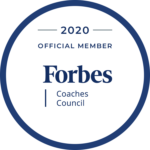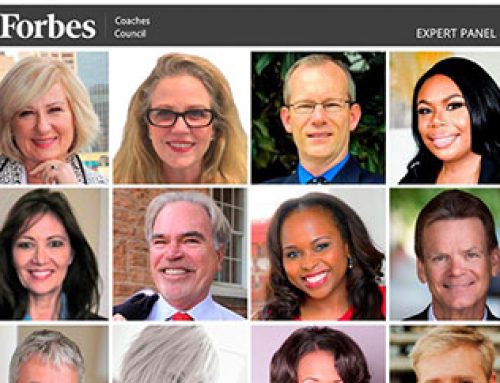College is a time where most students spend a lot of time looking at the small picture and all but ignoring what’s happening outside. Preparing for the world of work requires students to change the way they see things. There are no clearly defined lines for success in the outside world. Even landing a job doesn’t have any particularly clear-cut rules.
While college teaches a lot of the theoretical knowledge that a graduate may need, it doesn’t explain some specific skills that an HR department may be looking for. We consulted 15 members of Forbes Coaches Council to help guide students with the things that they should be doing before leaving college so as to gain a competitive advantage in their future careers.
1. Train Your Brain To Manage Stress Triggers
In what is being dubbed “Generation Stress,” the best thing young professionals can do is train their brain to manage stress triggers. Look at ways to manage stress in real-time early in your career to ensure a longer, healthier and happier work life. Start with learning how to reframe the way you perceive a stressful situation — count to 10 and respond versus react, and keep your eye on the prize. – Ann Holland, Strive Performance Coaching
2. Practice Emotional Intelligence
Practice empathy by paying attention to what other people are feeling. Get to know your strengths and weaknesses. Practice the art of productive conversation by listening to other people’s points of view and asking good questions. Stay connected to your classmates and professors. These relationships could be the key to your career opportunities for years to come. – Felice Tilin, GroupWorksConsulting LLC
3. Develop Cultural Intelligence
In order to understand the contemporary marketplace one needs to develop sensitivity and openness to diversity and multicultural differences. You will need to relate and work effectively across cultures. How to start? First understand your own cultural heritage and uniqueness. With the same curiosity, observe others. Engage in NGO projects abroad. Learn languages and travel as much as possible. – Inga Bielińska, Inga Bielinska Coaching Consulting Mentoring
4. Start Gathering Your Work Accomplishments
Demonstrated work history with quantifiable accomplishments is great, but what if you don’t have any? In addition to pursuing internships, start thinking about the projects you’ve done in school — these have value! Case studies, experiments and other individual or group exercises often have real-world applications. Document and describe these, and add them to your resume. – Scott Singer, Insider Career Strategies
5. Learn Soft Skills As Early As Possible
Without these skills, any degree is worthless. Learning how to execute effective principles and tactics when it comes to effectively communicating, leading and following others, problem-solving and being agile in your approach to dealing with obstacles, will accelerate your influence at any workplace you choose to invest your time and effort into. – Lynda Foster, Cortex Leadership Consulting
6. Get An Internship
The best way to be successful after graduation is to get some working experience in your industry prior to graduation. An internship is the best way to get that experience and potentially get your foot in the door of a corporation. Even if the internship is unpaid, the skills you will be able to build make for an effective resume, while networking and references will be useful when you begin your post-collegiate job search. – Katrina Brittingham, VentureReady LLC
7. Talk To People In Your Field Of Interest
If you’re really curious and schedule informational interviews with as many people in a field or category of interest, this will help: Position yourself for internships and practical experience, as well as help you clarify what you are/are not interested in and/or good at. What makes you smile when you learn something exciting or new? These are other ways to test the waters and get clear! – Michele Davenport, MOSAIC COACHING SOLUTIONS
8. Learn To Sell Face-To-Face
Building your sales skills will help you have a career without limits. Learning to sell properly, using a consultative selling approach, teaches you how to ask great questions, listen and work creatively to bring a solution to your client. You’ll learn how to build ad-hoc teams, how to get things done and how to win. – Dominic Rubino, BizStratPlan
9. Join A Professional Networking Group
If I could go back in time, I would tell myself to join a professional networking group like Toastmasters International sooner. As a college student, your world can be limited to your classmates and maybe workers, all of whom will be in the same boat looking for work when they graduate. So, get ahead and start committing to a networking group. – Helen Chao, Ascenditur Recruiting and Interview Right Consulting
10. Find A Mentor
Find a mentor and actively engage in exploratory situations where you can shadow an executive or intern for them on a temporary basis to see if you will thrive in this particular career environment. Be inquisitive and experience a “day in the life” of various careers to become better informed and understand the realistic demands for each career option. – Debbie Ince, Executive Talent Finders, Inc
11. Learn Workplace Etiquette
Prepare for your career by expanding your knowledge of business/corporate etiquette. Going from a classroom to a business setting is a transition, and knowing what’s expected will help you feel confident in your new role. Tips on bringing phones to meetings, controlling emotions in the workplace and having a neat, professional appearance are great examples of what you will want to know. – Chrissy Conner, Conner International
12. Develop Rabid Curiosity
Your No. 1 job should be developing your ability to learn and change. The job of your future may not even exist today — the pace of change is only accelerating, and we can’t predict what skills will be needed even years down the road. So invest in your ability to nurture your creativity, your curiosity and your ability to learn new things and adapt to change — it might be the one constant. – Aric Wood, XPLANE
13. Build Your Career On Doing What You Love
Many students plan for “the job.” They focus on what company they should join and what role they should go for — and they end up unhappy and not knowing what went wrong. To prepare for a career, figure out what you love to do and build your expertise on that! You will spend a good chunk of your life working — make sure you feel energized and useful with your contributions at work. – Jeanne Smith, Procore Technologies
14. Be Intergenerationally Conscious
College graduates and students have an opportunity to create edge with employers through truly learning how to work with and learn from the generational cohorts. Demonstrate your ability for this consciousness through research, getting mentored by other leaders and asking powerful questions in your interactions. – Dr. Denise Trudeau-Poskas, Blue Egg Leadership
15. Explore And Understand Artificial Intelligence
Most jobs can be replaced by artificial intelligence (AI) already today. Students will benefit tremendously from learning how to use AI, understanding its ethics, exploring and designing AI and developing the competencies that will help them utilize AI so that they can future-proof their career trajectory success, rather than be replaced by it. – Lital Marom, UNFOLD Media Group
As Seen On Forbes Coaches Council –
Debbie Kassebaum-Ince
Founder & President of Executive Talent Finders





